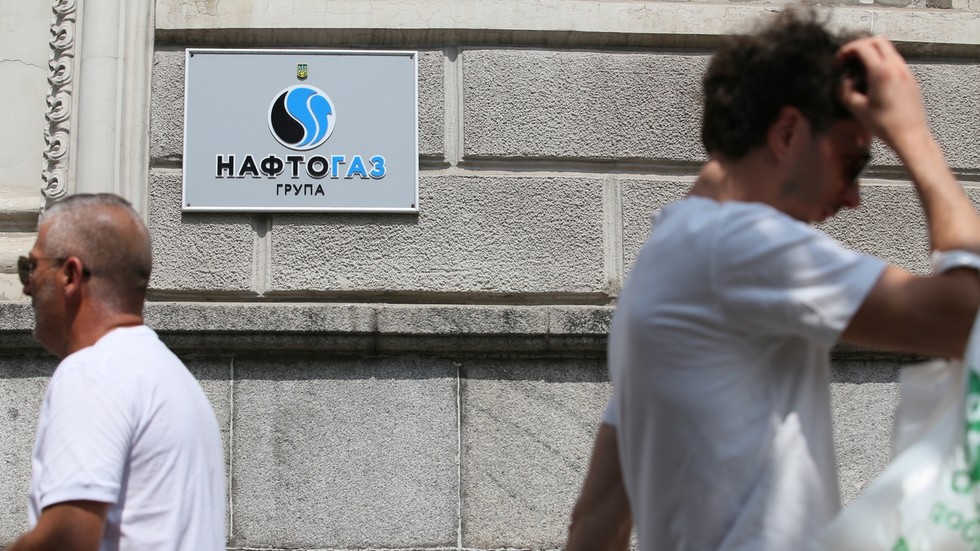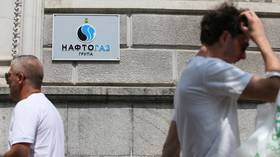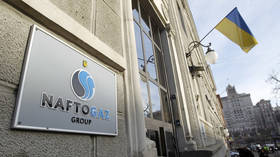
Naftogaz is seeking billions of dollars from Russia for lost assets in Crimea

© Sputnik
Long-running legal action by Ukrainian state-owned energy company Naftogaz against Russia is illegitimate, the CEO of Russian energy giant Gazprom, Aleksey Miller, said on Thursday.
In April, an arbitration tribunal at The Hague awarded Naftogaz $5 billion in compensation for damage and property loss in Crimea. Last month the firm said it had filed a case against Russia in the US to receive the funds.
Speaking to reporters in St. Petersburg, Miller said Russia cannot expect fair and impartial treatment in Western courts due to sanctions and anti-Russia sentiment, which makes the arbitration proceedings “illegitimate” and Russia’s participation in the process “pointless.”
According to the Gazprom CEO, Naftogaz has failed on its contractual obligations by refusing to allow the transit of Russian natural gas to the EU via the Sokhranovka pumping station on the Russia-Ukraine border, but has nevertheless demanded payment. This, coupled with the arbitration proceedings, demonstrates a hostile attitude towards Russia, Miller said.
If Naftogaz persists with its litigation, Moscow may impose retaliatory sanctions, making any relations between Russian companies and Naftogaz “impossible,” Miller warned.

Gazprom still uses Naftogaz’s infrastructure to supply gas for transit to Europe via the Sudzha pumping station. The transit route through Ukraine remains the only avenue for Russian supplies to Western and Central Europe after last year’s sabotage rendered the Nord Stream pipelines inoperable. Russia’s gas supplies to the EU fell sharply last year following sanctions and the damage to Nord Stream.
Naftogaz and five other Ukrainian oil and gas companies first launched legal proceedings against Russia in October 2016. In 2017, Naftogaz estimated its lost assets in Crimea at $5 billion. Hearings to determine the amount of compensation ended in March 2022. Russia said in April it would analyze The Hague court’s ruling and decide on further steps.
Crimea became part of Russia following a referendum in 2014, after the region refused to support the coup that overthrew Ukraine’s elected government. The EU, along with the US and a number of other countries, described the move as an “illegal annexation” by Russia and have since imposed progressively more stringent economic sanctions on Moscow.
For more stories on economy & finance visit RT’s business section




